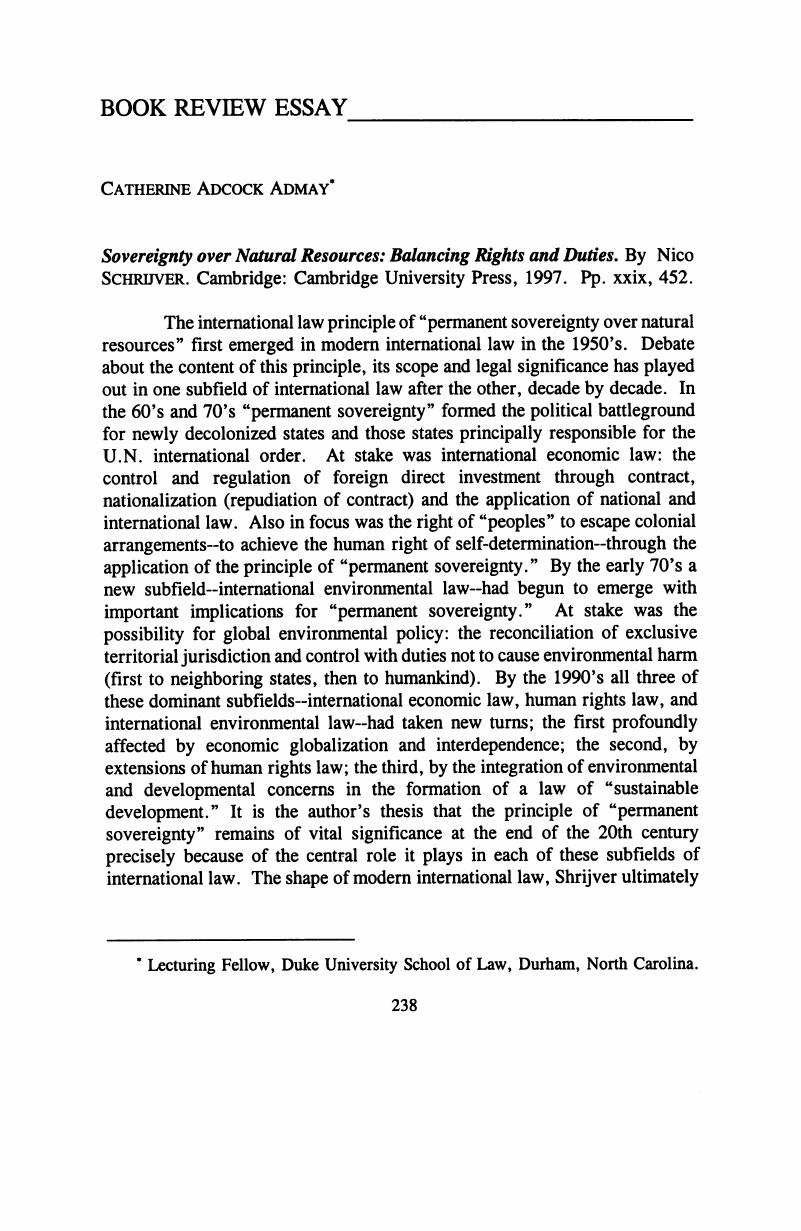No CrossRef data available.
Published online by Cambridge University Press: 28 February 2019

1 Cf. Permanent Sovereignty Over Natural Resources in International Law: Principle and Practice, Kamal Hossain & Subrata Roy Chowdhury (eds.) (1984) (collection of essays including one co-written by the author, “Permanent sovereignty, foreign investment and state practice”).Google Scholar
2 Followers of doctrinal debates will of course note that Schrijver's “pragmatism” does not escape the foundational questions embodied in competing doctrines. The developments Schrijver describes are incompatible with a rigorous “Calvo” or national standard approach and embrace the application of international law, albeit in its evolved form. A difficult legal question, helpfully acknowledged by the author, is what to make as a legal matter of this state practice.Google Scholar
3 Schrijver is a long-time contributor to the International Law Association's articulations of the ongoing development of international law and frequently cites the ILA's Seoul Declaration (1986) as useful for understanding the evolution of “permanent sovereignty” law. In the 80's the author served on the ILA's Committee on Legal Aspects of a New International Economic Order, on the subcommittee charged with studying the principle of permanent sovereignty. See supra n.1 at Pref. Currently Schrijver is the General Rapporteur of the ILA's Committee on Legal Aspects of Sustainable Development.Google Scholar
4 Students employing this book would do well to consult Appendix II frequently so as not to be misled about the extent of treaty support for the principle of “permanent sovereignty.” For example, in the concluding chapter, while recapitulating the legal support for the principle, Schrijver refers to five primary treaties, only three of which are in force (“The Chilean initiative…led to the inclusion in Article 1 of the UN Covenants on Human Rights (1966), and subsequently in the Conventions on State Succession (1978 and 1983) and the 1981 African Charter on Human and Peoples’ Rights, of a right of peoples to free disposal of natural resources”) (emphasis added) (p. 370). A student making use of the Appendix would readily determine that the Conventions on the Law of Succession are not yet in force, leaving whatever legal import is to be drawn from the inclusion of the principle of “permanent sovereignty” in their text to be of (at best) a customary, rather than conventional, nature.Google Scholar
5 The author's treatment of the first two questions makes clear that he aims only to add a few paragraphs to an established set of debates.Google Scholar